External Backers Pour Billions Into Ukraine To Counter War Damage
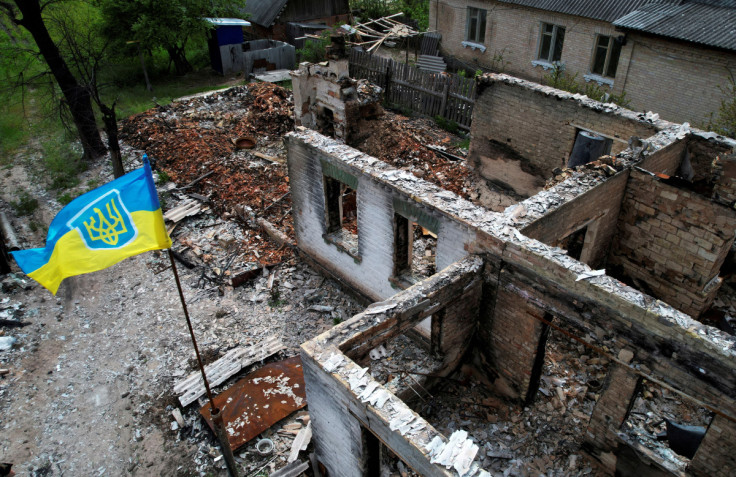
Pictures of devastation in Ukraine following Russia's invasion have sparked urgent questions over how its reconstruction can be paid for. But before they can even begin to be answered, Kyiv is seeking billions just to ride out this year.
After a 30% contraction in its economy in 2022, Ukraine will need $38 billion by the end of year to cover its budget deficit alone.
"We need these funds for critical costs: funding of salaries and pensions, education and medicine," Prime Minister Denys Shmyhal told a government meeting this week.
"For economic stability and a successful fight against the enemy, Ukraine needs more help."
On top of that, Kyiv said it will need $17 billion this year for urgent energy repairs and de-mining and rebuilding some of its critical infrastructure.
While the EU is expected to provide the lion's share of funds to cover the budget deficit at $18 billion, and Washington a further $10 billion, Kiev has yet to identify sources of funding to meet those additional costs.
GRAPHIC: Sources of Ukraine's state budget financing 2023 (
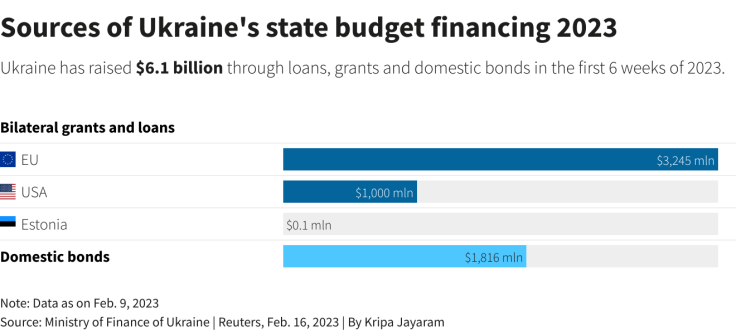
)
It is now pressing for a multi-billion dollar borrowing program from the International Monetary Fund, with the fund meeting the country's officials in Warsaw this week.
The fund approved a four-month monitoring program for Ukraine in December aimed at maintaining economic stability and helping promote donor financing, which should eventually pave the way towards "a possible full-fledged IMF-supported program", it said.
The scope of that program is a source of ongoing debate. This is complicated by the premise that IMF financing is extended to countries that have the "institutional and political capacity and commitment to implement" a fund program, and generally does not include countries at war.
In the past 12 months, Ukraine has received $36.4 billion from external sources, of which nearly 60% were concessional loans and the remainder grants, according to ministry of finance data.
Washington was Kyiv's top lender, providing nearly $13 billion in grants over the period, while the European Union extended just over $11 billion in a mix of grant and loans. Number three was the IMF, with the Washington-based lender providing $2.7 billion.
PRIVATE SECTOR
Aside from help on a national level, a number of multilateral lenders focussed on extending financing to the private sector have also helped shore up Ukrainian firms since the start of the year.
The European Bank for Reconstruction and Development (EBRD) deployed some 1.7 billion euros to Ukraine for investments in vital infrastructure, energy and food security and support for the private sector in 2022.
This has included providing hundreds of millions to Ukraine's railway company Ukrzaliznytsia, power grid operator Ukrenergo and gas firm Naftogaz, as well as private-sector companies.
The lender says it is on track to take the total amount to 3 billion euros by the end of 2023.
The World Bank's private investment arm, the International Finance Corp, also signed off a plan for a $2 billion support package in December, which foresees the lender co-financing in equal measure with governments.
It did not give details of the governments potentially involved, or on the timetable for funds to be released.
Lisa Kaestner, regional manager for Ukraine at the IFC, said the lender was looking for projects in the transportation and communications sector, as well as agribusiness, as Ukrainians work to resurrect businesses disrupted by war.
"Understanding the risk is really challenging," Kaestner told Reuters. "But to me, one of the surprises has been how the private sector has been so resilient."
Both the IFC and EBRD are also among investors in a fund managed by private equity firm Horizon Capital, which in turn invests in tech and export oriented businesses in Ukraine and Moldova. The fund had raised $125 million in a first closing in September, and plans to reach $200 million soon.
Ukraine's costs will only mount from here. The Kyiv School of Economics last month estimated that the total amount of damage the war has caused to the country's infrastructure has risen to $138 billion.
GRAPHIC: War damage to Ukraine (
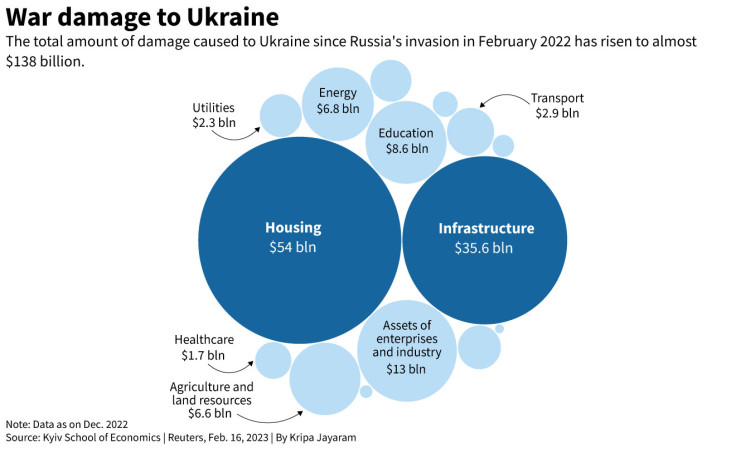
)
The cost of rebuilding will be dramatically higher.
In September the World Bank estimated rebuilding the country could cost nearly $350 billion. That was before major bombing campaigns by Russia launched in October, and experts predict this number will multiply when the lender publishes its updated assessment in April.
Arup Banerji, World Bank country director for Ukraine, said the nation will need continued financial support going forward.
"An economically weak Ukraine is also militarily weak. If there's hyperinflation, the economy's going under," said Banerji.
"Supporting Ukraine now is critical to avoid a devastating humanitarian crisis and to strengthen Ukraine for what it's doing for the rest of the world."
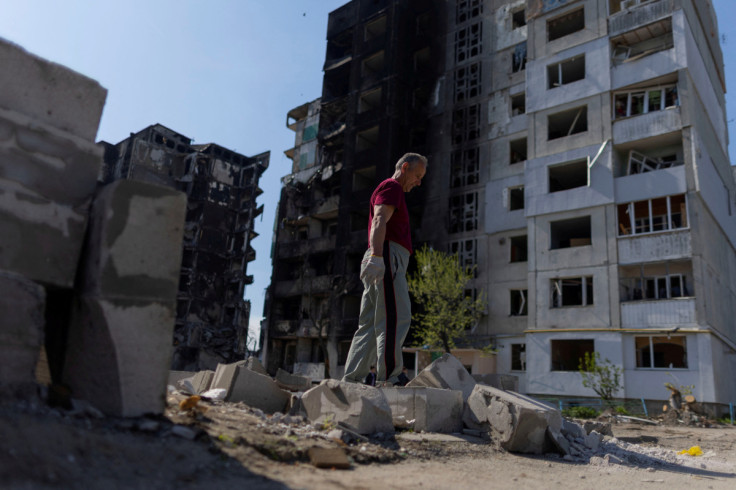
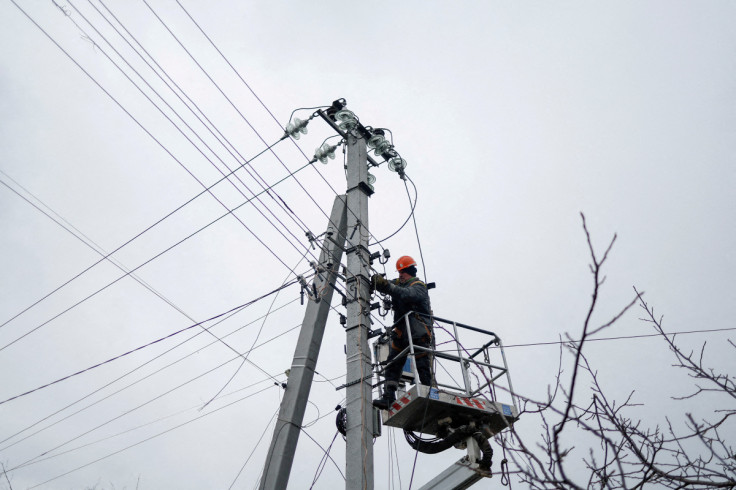
© Copyright Thomson Reuters 2025. All rights reserved.





















